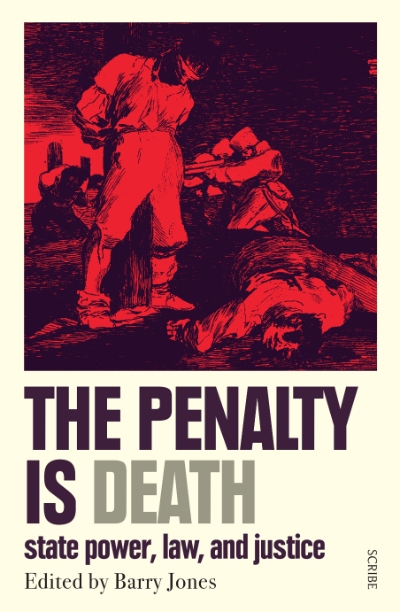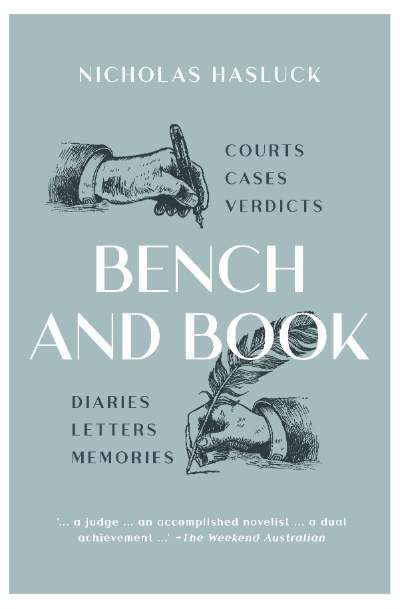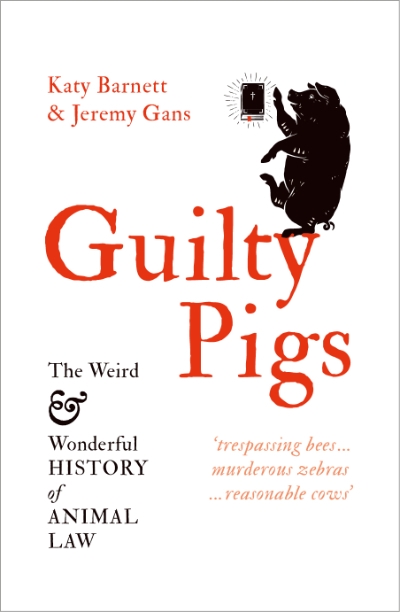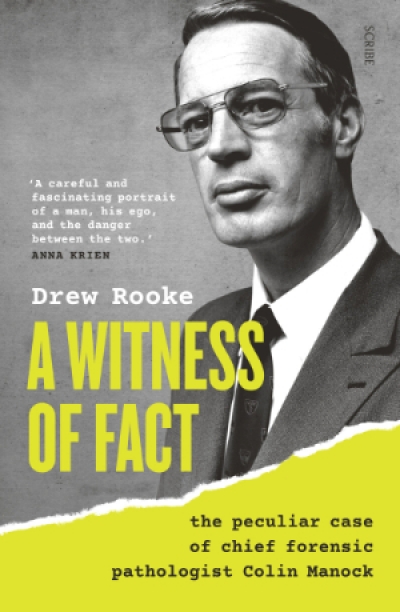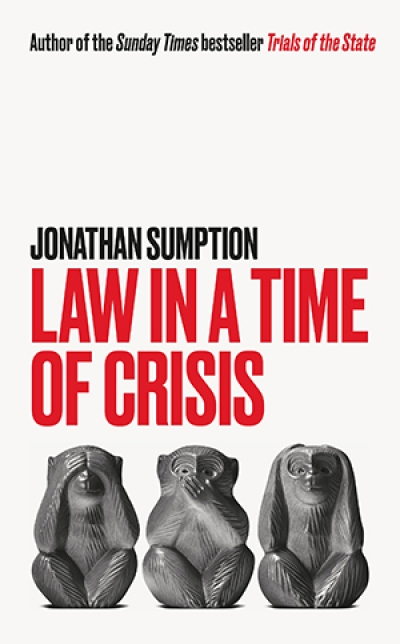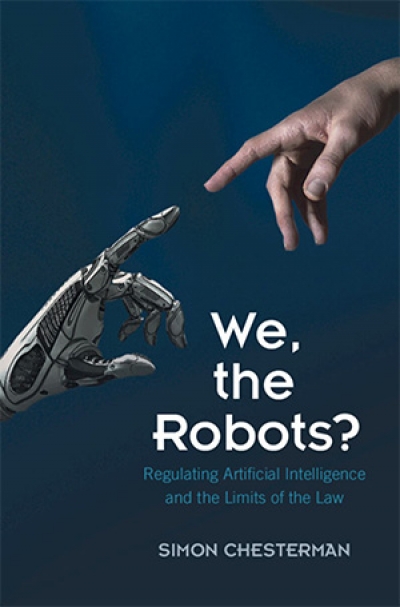Law
The Penalty Is Death: State power, law, and justice edited by Barry Jones
In 1968, Barry Jones edited, and contributed to, the first edition of The Penalty Is Death. The book was produced in the immediate aftermath of the execution of Ronald Ryan in Victoria in February 1967, and in the context of vigorous debates in Australia and other Western countries as to the retention of the death penalty. The second edition, published to commemorate the hundredth anniversary of the abolition of the death penalty in Queensland, arrives in a very different world. A majority of countries are now either abolitionist in law, or have in place an express or de facto moratorium against execution.
... (read more)Nicholas Hasluck is that relatively rare combination of practising lawyer and accomplished writer. A former judge of the Supreme Court of Western Australia, he has also produced more than a dozen novels and as many works of non-fiction. This duality of roles is not unknown. Two contemporary examples that come to mind are Jonathan Sumption, who was on the UK Supreme Court and is a medieval historian, and Scott Turow, a Chicago attorney whose works include the trial novel Presumed Innocent (1988).
... (read more)Law, Capitalism and Democracy: A sociology of Australian legal order by Pat O'Malley
A few years ago my publisher suggested that I write a book on sociology of law in Australia. My reply was that there existed far too little research to adequately deal with the topic. I therefore approached O’Malley’s book with a little bit of jealousy. He has written a book I would have liked to have written.
... (read more)Russia’s invasion of Ukraine in late February this year was met with near universal condemnation by Western nations. While aggression of this kind and on this scale has been relatively anomalous this side of the second world war, Russia’s disregard for the laws and institutions upholding global peace and security is far from unprecedented. In this week’s episode of The ABR Podcast, Ben Saul reads his commentary piece from the July issue, arguing that Western disrespect for international law is entirely consistent with Russia’s violation of ‘a stable, mutually agreed world order’ ...
... (read more)Guilty Pigs: The weird and wonderful history of animal law by Katy Barnett and Jeremy Gans
The title of this book, Guilty Pigs, is a reference to the medieval practice of bringing animals and insects to trial and/or punishing them for their conduct, such as killing humans, or destroying orchards, crops, and vineyards, or, in one case, chewing the records of ecclesiastical proceedings. The behaviour of the animal or insect determined whether proceedings were brought in secular or ecclesiastical jurisdictions. A charge of homicide would be initiated in secular tribunals, where domesticated animals such as pigs, cows, and horses were tried and punished, invariably by pronouncement of the death penalty. When animals and insects such as rats, mice, locusts, and weevils invaded houses, fields, or orchards, proceedings were brought in ecclesiastical courts, which eschewed the death penalty, instead excommunicating the hapless defendant.
... (read more)In an age of disinformation, whistleblowers such as Julian Assange and Edward Snowden have been accorded the status of folk heroes. And yet, as their respective cases show, no other act of public service is harried as ruthlessly and vindictively by governments whose secrets have been aired. In this episode of The ABR Podcast, listen to Kieran Pender read his cover feature for the April issue, in which he argues for stronger whistleblower protections by examining the case of Bernard Collaery.
... (read more)On the first day of March this year, Scott Morrison declared his commitment to democratic principles. ‘My government will never be backward when it comes to standing up for Australia’s national interests and standing up for liberal democracy in today’s world,’ the prime minister told reporters. ‘We can’t be absent when it comes to standing up for those important principles.’ It was a deeply hypocritical statement from a leader who has overseen raids on journalists, the prosecution of whistleblowers, and the degradation of transparency mechanisms at the heart of our democracy. Standing up for important democratic principles is just about the opposite of what the Morrison government has done, domestically at least, in recent years. The secrecy-shrouded prosecution of Bernard Collaery makes that abundantly clear.
... (read more)A Witness of Fact: The peculiar case of chief forensic pathologist Colin Manock by Drew Rooke
Drew Rooke begins A Witness of Fact in the viewing gallery of Adelaide’s Forensic Science Centre, his eyes scanning the stainless steel benchtops, scissors, ladles, a pair of ‘large, heavy-duty shears used for cutting through ribs’, and an arsenal of knives of different styles and sizes – ‘what you would see in a commercial kitchen’. The atmosphere is cool, sterile, and menacing. This is where disgraced forensic pathologist Colin Manock worked for thirty years. Given that this book is about Manock, the opening could be confused with scene-setting. But there is a deeper significance to the author’s choice of words, one that goes to the heart of his book: what transforms knives in a commercial kitchen into specialist tools of medical forensics?
... (read more)When World War II began, a defence regulation was issued in Great Britain that enabled the home secretary to imprison anyone who they reasonably believed had hostile associations. One such interned individual, Robert Liversidge, objected to his detention and challenged the validity of the home secretary’s decision. In the subsequent case, Liversidge v Anderson, the House of Lords adopted a deferential approach, holding that in a time of war it was inappropriate for the courts to subject the home secretary’s decision making to much scrutiny. But in a thundering dissent, Brisbane-born Lord James ‘Dick’ Atkin disagreed. ‘In England, amid the clash of arms, the laws are not silent,’ he wrote. ‘They may be changed, but they speak the same language in war as in peace.’
... (read more)We, the Robots?: Regulating artificial intelligence and the limits of the law by Simon Chesterman
The age of Artificial Intelligence (AI) has arrived, though not so much an age of sentient robots as one of ubiquitous data collection and analysis fuelling automated decisions, categorisations, predictions, and recommendations in all walks of life. The stakes of AI-enabled decision-making may be as serious as life and death (Spanish police use a system called VioGén to forecast domestic violence) or as trivial as the arrangement of pizza-toppings.
... (read more)

